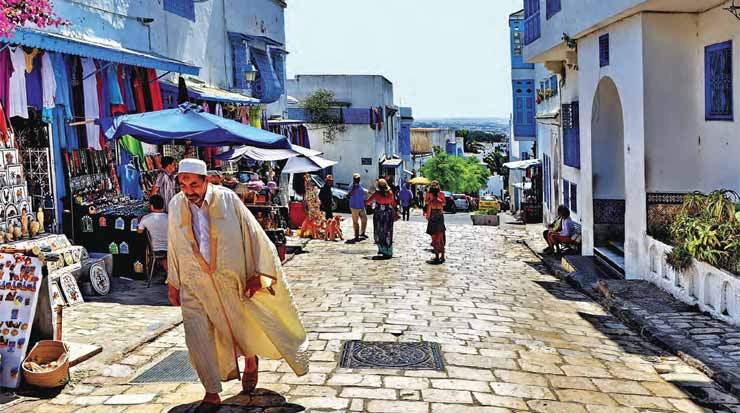the country’s highlights was screened in key markets, including London, Paris, Berlin, Brussels and Milan.
To support the nation’s endeavours, the World Tourism Organization also held its 4th International Conference on Tourism and the Media in Tunis.
However, Tunisia’s present and future is closely interconnected with the North African region in general, and vice versa.
“North Africa’s perception does really affect the business levels in Tunisia [because] we are a country of sea and workforce.
If the country is peaceful, people will come to enjoy the sun and the great beaches.
As for workforce, investors will be eager to come and make business here,” asserted Bouabid, highlighting how the situation in neighbouring countries and the area’s perception in general can both positively as well as negatively affect the industry’s ability to thrive.
For instance, if a nearby country is deemed a no-fly zone, accessibility suffers considerably, leaving vague possibilities for local industry stakeholders, noted Bouabid.
Nevertheless, as she said, expectations remain high.
“They say time heals,” recited Bouabid. “We hope that […] people will feel eager again to come and visit Tunisia.”
Hopes are indeed high.
“Tunisia was and remains the most popular and peaceful destination in the North African area,” professed Bachar, reinforcing that Tunisian people are known globally as tolerant, friendly and welcoming hosts.
For this very reason, Bachar expected visitors to gradually return to the destination.
“We, Tunisians are sure that the situation in our country will be [resolved] as soon as possible.
We believe in the millions of friends of Tunisia all over the world, and the [nation’s] people to convey the message and reassure their patriots that Tunisia remains a safe, welcoming and beautiful country to visit,” concluded Bachar.









